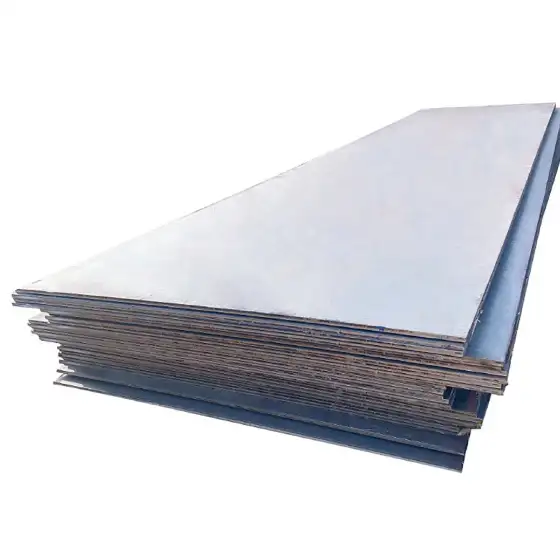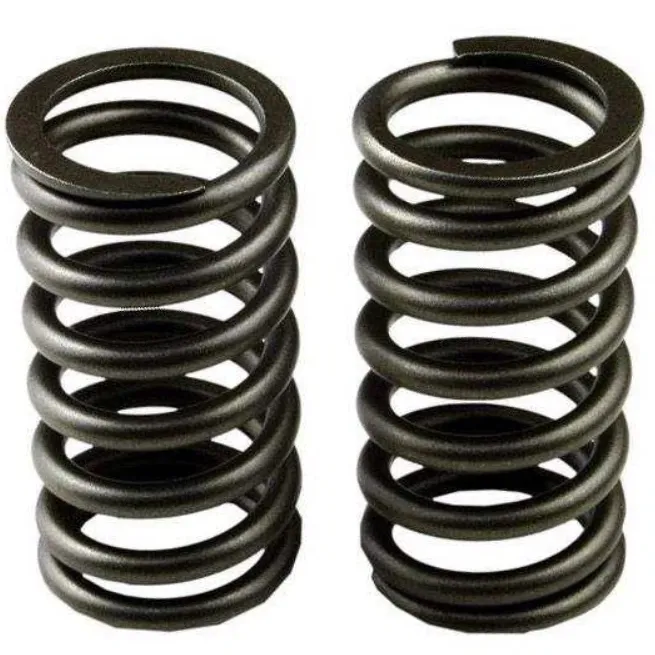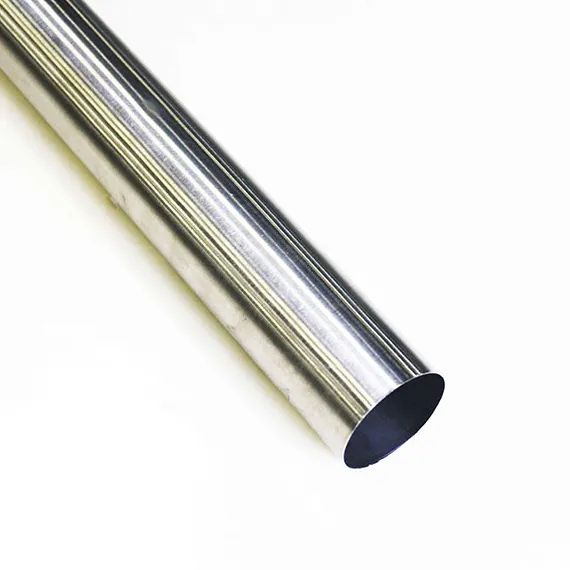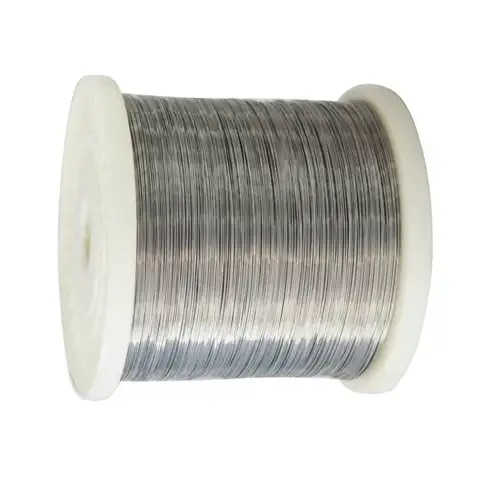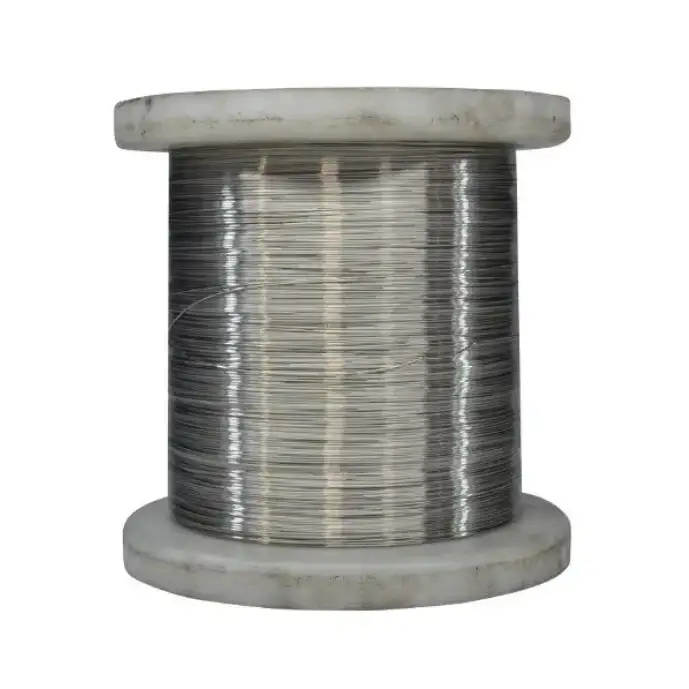NM400 is a Chinese quench-and-temper wear-resistant steel plate with a surface hardness around 360–420 HBW, engineered for demanding abrasive service where a balance of hardness, toughness and economical cost is required. For many mid-duty mining, earthmoving and bulk-handling components NM400 gives excellent life-for-cost.
Why NM400 exists
Wear-resistant steels are a pragmatic engineering solution: instead of frequent part replacement, a tougher, harder plate extends component life and cuts lifecycle cost. NM400 was developed in China under the national abrasion-resistant steel family (NM series) to offer a cost-effective, weldable plate with nominally ~400 HB surface hardness suitable for mid-intensity wear environments such as truck bodies, bucket liners, crusher parts and chutes. Its principal value proposition is delivering reasonable hardness and toughness at a lower price than imported branded wear steels.
What is NM400 steel plate?
NM400 is the grade name used in Chinese practice for a wear-resistant plate with an approximate nominal Brinell hardness near 400 HBW after quench and temper processing. NM400 plates are commonly produced to comply with China’s GB/T 24186 (wear-resistant steel plates for construction machines) family of standards and are supplied in quench-and-temper condition with guaranteed surface hardness and chemical limits. NM400 belongs to a series (NM300, NM360, NM400, NM450, NM500, etc.) where the number refers roughly to the nominal nominal Brinell hardness value.
Chemical composition (typical ranges)
Below is a practical technical table assembled from common manufacturer datasheets and ladle analyses used in trade documentation. Individual mill certificates (MTC / test reports) must be checked for contract purchase.
| Element | Typical max / range (wt. %) | Notes |
|---|---|---|
| Carbon (C) | 0.25 – 0.40 | Increases hardness / wear; controlled to preserve weldability |
| Silicon (Si) | 0.20 – 0.80 | Deoxidizer; small amounts improve strength |
| Manganese (Mn) | 0.60 – 1.60 | Strength and hardenability contributor |
| Phosphorus (P) | ≤ 0.025 | Impurity; low limits for toughness |
| Sulfur (S) | ≤ 0.010 | Impurity; low limits for toughness and welding |
| Chromium (Cr) | 0.20 – 1.00 | Improves hardenability and wear resistance (dependent on source) |
| Nickel (Ni) | ≤ 0.50 | Occurs in some variants for improved toughness |
| Molybdenum (Mo) | ≤ 0.30 | Adds hardenability and toughness, present in some brands |
| Boron (B) | trace ppm | Sometimes used in microalloy steels for hardenability control |
(Table compiled from manufacturer datasheets and technical PDFs for NM-series plates). For typical NM400 ladle analysis and guaranteed chemical windows see supply datasheets.
Mechanical & physical properties
Manufacturers publish guaranteed surface hardness and typical mechanical properties below. Always require a mill test certificate (EN 10204/3.1 or equivalent) with each batch.
| Property | Typical / Guaranteed |
|---|---|
| Surface hardness (HBW) | 360 – 420 HBW (nominal ≈ 400 HBW) |
| Tensile strength (Rm) | 900 – 1200 MPa (varies by thickness & process) |
| Yield strength (ReH) | ~700 – 1000 MPa (dependent on grade variant) |
| Elongation (A) | 8–18% (varies with thickness & heat treatment) |
| Impact toughness | Varies; some NM400 products specify room-temp Charpy values; low-temperature toughness differs by mill |
| Density | ≈ 7.85 g/cm³ (standard steel density) |
| Typical hardness depth profile | Quench & temper produce hard surface and good core toughness; hardness near surface higher than core |
Note: NM400 is designed primarily for abrasion resistance; mechanical variables vary with supplier, plate thickness and heat treatment cycle. Always specify required tensile, hardness and impact acceptance criteria in purchase order.
NM400 specifications, delivery condition and tolerances
These are common contractual items to include when buying NM400:
| Item | Typical requirement |
|---|---|
| Standard | GB/T 24186-2022 (or GB/T 24186-2009 where older mills still reference it) |
| Delivery condition | Quenched and tempered |
| Thickness range | Commonly 4 mm – 150 mm (many mills produce up to 120 mm under GB/T; custom thicker plates may be offered) |
| Surface hardness guarantee | e.g., 360–420 HBW measured on surface (sampling per standard) |
| Inspection & test | EN 10204/3.1 MTC, surface hardness tests, ultrasonic or UT if required |
| Tolerances | Per GB/T 24186 or agreed drawing tolerances (e.g., thickness tolerance per GB/T/EN variants) |
Purchasers should request the exact GB/T clause references (hardness sample method, impact test location and sampling frequency) in the contract.
What is equivalent to NM400 steel?
Common commercial equivalents (approximate; chemistry and guaranteed properties differ):
-
Hardox® 400 (SSAB) — a branded, closely controlled AR steel from SSAB with nominal 400 HBW and extensive datasheets for guaranteed toughness and dimensions. Hardox is a common benchmark for premium performance.
-
AR400 / AR400 series — the US-style AR (Abrasion Resistant) 400 plates from various mills; similar hardness band but variable toughness and processing.
-
JFE EH-400 / EVERHARD etc. — Japanese wear plate series with guaranteed Brinell hardness classes (EH360, EH400, EH500). JFE publishes detailed technical notes for welding and forming.
Important: “Equivalent” in trade means comparable hardness and service behaviour in specific applications; it does not imply identical chemistry, weld practices or guaranteed impact toughness. For safety-critical structures, specify the exact standard, toughness and welding preheat requirements rather than a loose equivalence.
Sizes and weight (specifications & quick calculator)
Most mills produce NM400 plates in common widths and lengths; many stockists cut-to-size.
Typical supply sizes:
-
Widths: up to 2000–4020 mm (common widths 1500, 1600 mm for thin plates; wider for thick plates per mill capability).
-
Lengths: up to 9000–18000 mm depending on mill.
Mass per m² (useful quick conversion): density ≈ 7.85 t/m³ → mass (kg/m²) = thickness (mm) × 7.85 / 1000.
| Thickness (mm) | Mass (kg/m²) |
|---|---|
| 4 | 31.4 |
| 6 | 47.1 |
| 8 | 62.8 |
| 10 | 78.5 |
| 12 | 94.2 |
| 20 | 157.0 |
| 25 | 196.3 |
| 30 | 235.5 |
Example: a 2000 × 6000 mm plate at 12 mm: area 12 m² → mass ≈ 12 × 94.2 = 1130.4 kg (~1.13 t).
When ordering, always check mill maximum plate width/length for the chosen thickness and whether plates are produced in single-roll or welded plates.
Fabrication notes (welding, cutting, bending)
Practical recommendations from experience and supplier notes:
-
Welding: NM400 is weldable but requires matching consumables and sensible heat input control. For thicker sections or critical components, use low-hydrogen electrodes, preheat as recommended by supplier (preheat may be not required for thin plates but is common for thicker sections/free-edge welds). Post-weld stress relief may be considered for heavy structures.
-
Cutting: Plasma or oxy-fuel cutting is common. Hardness and alloying increase tool wear; use appropriate consumables.
-
Bending/forming: Bending limits depend on hardness and thickness; some NM400 products allow cold bending on larger radii, but consult mill data — excessive bend radius can crack hardened surface.
-
Use advice: For high impact areas (frequent shock plus abrasion), prefer steels with proven impact toughness or specify low-temperature toughness testing.
2025 Price comparison (USA / Europe / China)
Price is highly volatile—affected by global scrap, mill output, logistics and order size. The numbers below are indicative ranges for NM400 / NM400-equivalent plates in 2025 market reports and supplier price sheets; treat them as procurement starting points and always request firm quotations (FOB/CIF/DAP) for accurate costing.
| Region | Typical 2025 price per ton (USD) — indicative range | Notes / source |
|---|---|---|
| China (domestic NM400 OEMs) | $500 – $950 / t | Chinese domestic OEMs and stockyards offer the most competitive pricing; exact depends on thickness, surface finish, MOQ. |
| Europe (SSAB / branded Hardox supply) | $1,100 – $2,000 / t | Branded Hardox and European mill product premiums; logistics and brand premium contribute to higher price. |
| North America (distributors / domestic mills) | $950 – $1,800 / t | Mix of imported AR and domestic AR plates; distribution margins and tariffs change final landed price. |
Procurement tip: For large projects, Chinese NM400 mills can provide competitive FOB factory pricing and large stock; branded Hardox yields higher predictability in toughness and is often preferable where specification and audit trail matter.
FAQs
-
Is NM400 the same as Hardox 400?
No. they are comparable in nominal hardness band (~400 HBW) but Hardox® 400 is a branded product with controlled chemistry, guaranteed toughness and detailed mill documentation from SSAB. NM400 is a Chinese standard grade with similar hardness but variable mill-to-mill properties. Always specify required testing and acceptance criteria, not only grade name. -
What testing should I demand on purchase?
Require EN 10204/3.1 MTC, surface hardness readings, chemical analysis, and impact test results if low-temperature toughness is important. -
Can NM400 be welded to structural steels?
Yes with matched filler and appropriate preheat/thermal control. Avoid high heat input and verify consumables with the supplier’s welding instructions. -
How do I select between NM400 and a harder NM450 / NM500?
Choose by wear mode: for abrasive sliding wear NM400 often suffices; for extremely abrasive, long-life needs select NM450/NM500 but expect increased cost and reduced formability. -
Is NM400 suitable for bucket liners and dump bodies?
Yes. widely used for these applications; ensure weldability and thickness suit the application. -
What is the expected life improvement vs ordinary structural plate?
Life extension varies; typical service life improvement is multiple times (often 3–10×) depending on abrasion intensity and part geometry. -
Do I need to worry about hydrogen cracking?
For thicker plates and higher heat-input welds, control hydrogen with low-H consumables and consider preheat/post-weld heat treatment where specified. -
Can NM400 be flame cut and drilled?
Yes; use standard industrial cutting methods but be mindful of hardened surface causing additional tool wear. -
How should NM400 be stored and handled?
Store flat on timber, avoid edge damage, keep clean and protected to avoid contamination of welding surfaces. -
Where can I get mill certificates and traceability?
From the supplier — insist on EN 10204/3.1 (or equivalent) certificates and batch traceability to comply with procurement and QA audits.
Why choose MWAlloys
MWAlloys is an industrial steel supplier with deep experience in abrasion-resistant steels. For NM400 plates we offer:
-
Factory-direct pricing — we work with Chinese mills and pass on 100% factory price advantage for large and small orders.
-
Stock readiness — typical stocked thickness range from 6 mm to 50 mm for immediate cutting and shipping; expedite options available for urgent projects.
-
Quality control — full EN 10204/3.1 MTC, hardness maps and traceable batch documentation with every shipment.
-
Value services — cutting, edge-preparation, chamfering and packing for export.
Contact MWAlloys for competitive quotations, MOQ flexibility and rapid lead times from China-based mills.
Practical buying checklist
-
Specify standard (GB/T 24186-2022 or agreed spec), hardness band, thickness and sizes.
-
Request EN 10204/3.1 MTC and hardness test method.
-
Ask for welding instructions and recommended electrodes.
-
Confirm delivery condition (quench & temper) and sampling frequency.
-
Compare total landed cost, not only plate price — include cutting, packing, freight and duties.
Closing notes from a materials expert
NM400 is a cost-effective, widely available wear-resistant steel that balances hardness, toughness and price. For many bulk handling and mid-duty mining parts it is a pragmatic choice. However, material selection should be driven by a careful analysis of wear mode (sliding abrasion vs impact), expected life, repairability and total cost of ownership. If you need a tailored recommendation (thickness, weld procedure, impact specs or an actual quotation), MWAlloys can provide mill datasheets, sample certificates and a factory price offer with stock availability.

